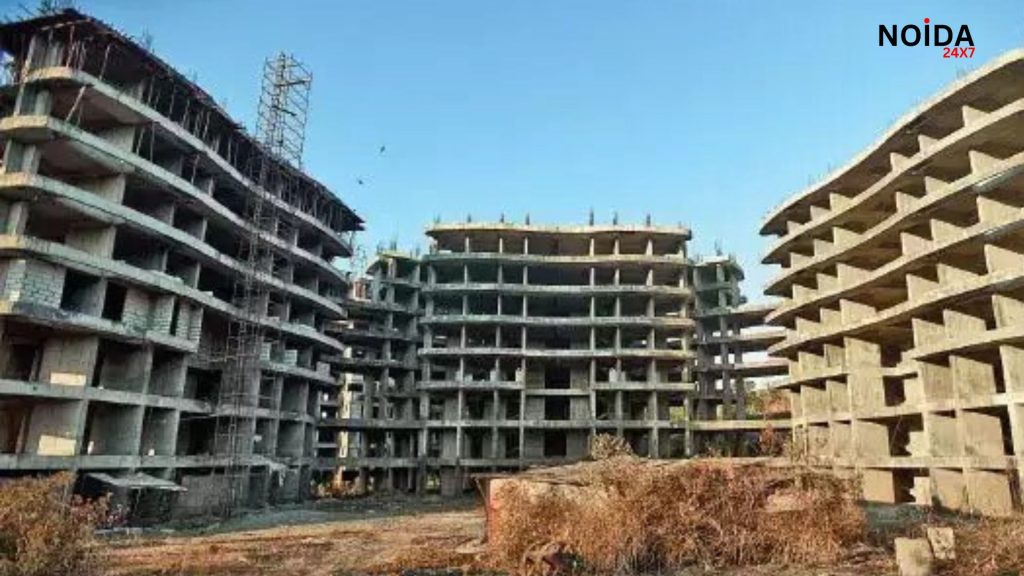NGT’s Directive
The National Green Tribunal (NGT) has made an important decision. They have ordered an immediate halt to construction activities in Noida and Greater Noida. This applies to projects that do not have the necessary environmental clearances. The directive comes as a response to a petition highlighting illegal construction in the area.
Concerns Raised by Local Leader
The petition was filed by Rajendra Tyagi, a BJP leader and former Municipal Corporator. He pointed out the many unauthorized construction projects happening in the region. Tyagi mentioned that these projects include residential, commercial, and industrial developments. All of these violate existing environmental norms.
Extent of Illegal Construction
The petition details the scale of the problem. It lists 56 villages in Greater Noida and 18 in Noida affected by unauthorized colonies and townships. According to Tyagi, more than 20,000 hectares of fertile agricultural land in Greater Noida have been encroached upon. A similar amount of land in Noida is also being used for illegal plotting.
Beyond the encroachment, Tyagi’s petition raises additional environmental concerns. It highlights illegal topsoil extraction and the operation of unauthorized borewells. There are also photographs showing how electricity poles are being erected in these illegal colonies. All of this is happening without the mandatory no-objection certificates.
The Tribunal’s Response
On December 9, the NGT convened to discuss the issue. The bench was led by Justice Prakash Shrivastava and included Justice Sudhir Agarwal and expert member A Senthil Vel. The NGT reviewed the facts presented by the authorities. They noted that construction activities were ongoing without essential approvals. This includes crucial permits like the Consent to Establish (CTE), Consent to Operate (CTO), and Environmental Clearance (EC).
The NGT has taken a firm stance. They have instructed the Uttar Pradesh Pollution Control Board (UPPCB) to take action against illegal plotting. The tribunal emphasized the importance of complying with environmental standards. They specifically warned against construction activities in floodplain areas, which are particularly sensitive to environmental changes.
Impact of Urbanization
This ruling reflects a growing concern over urban development in the region. The unchecked urbanization has raised alarms among residents and environmentalists alike. There is a need for greater regulation to protect the natural landscape and ensure sustainable development.
The illegal conversion of over 20,000 hectares of agricultural land has severe implications. It not only threatens local ecosystems but also jeopardizes the livelihoods of farmers and the community. The NGT’s decision is a crucial step toward addressing these issues.
Next Steps for Authorities
With the NGT’s ruling, authorities are now under pressure to act. The tribunal’s decision highlights the need for stricter enforcement of existing regulations. The UPPCB is tasked with ensuring compliance with environmental norms in construction and development projects moving forward.
The NGT has expressed the necessity for a coordinated effort. Collaboration between local authorities, environmental agencies, and developers is essential. This will help prevent future violations and protect the environment from further degradation.
Public Reaction
The public response to the NGT’s ruling has been mixed. Many residents and environmental activists have welcomed the decision. They see it as a victory for environmental protection and sustainable development. It offers hope that the authorities will take environmental regulations more seriously.
Conversely, some builders and developers may view this as an obstacle to growth. They argue that the rapid urbanization of the region is necessary for economic development. However, the NGT’s stance emphasizes that growth must not come at the cost of the environment.



